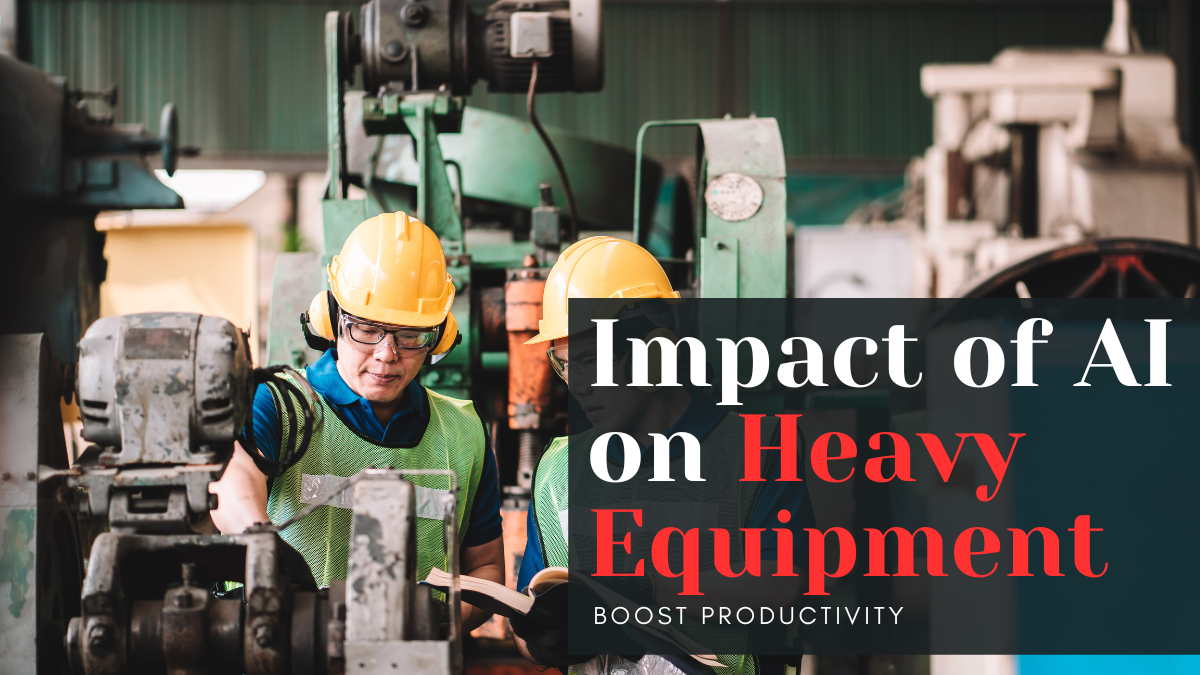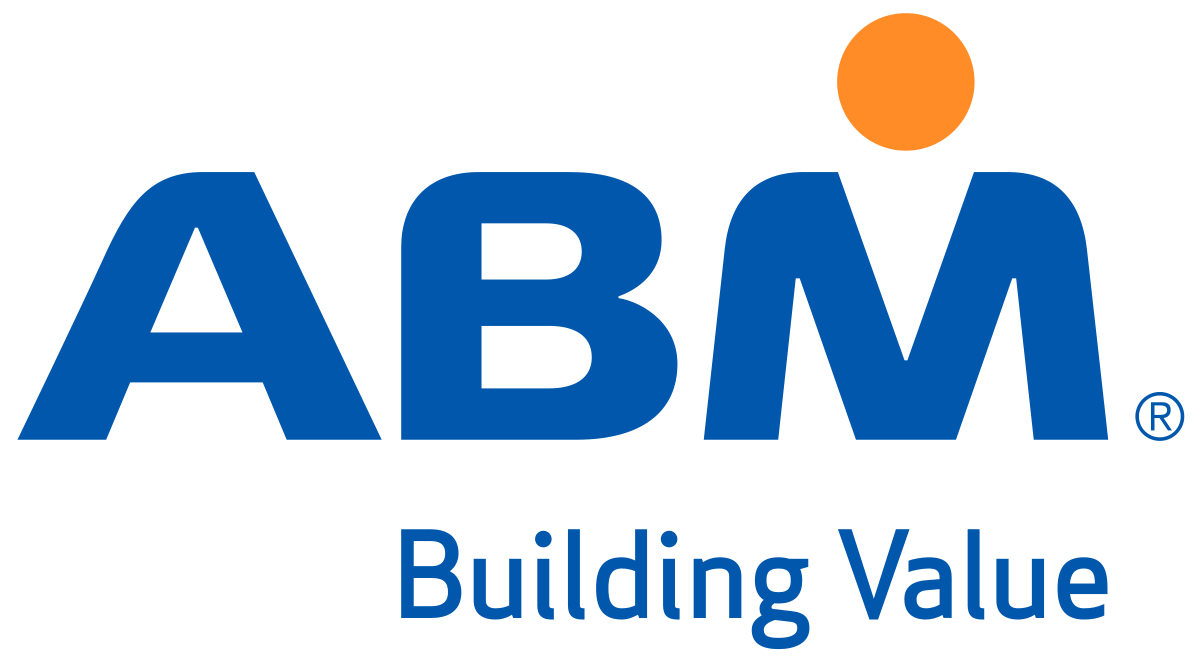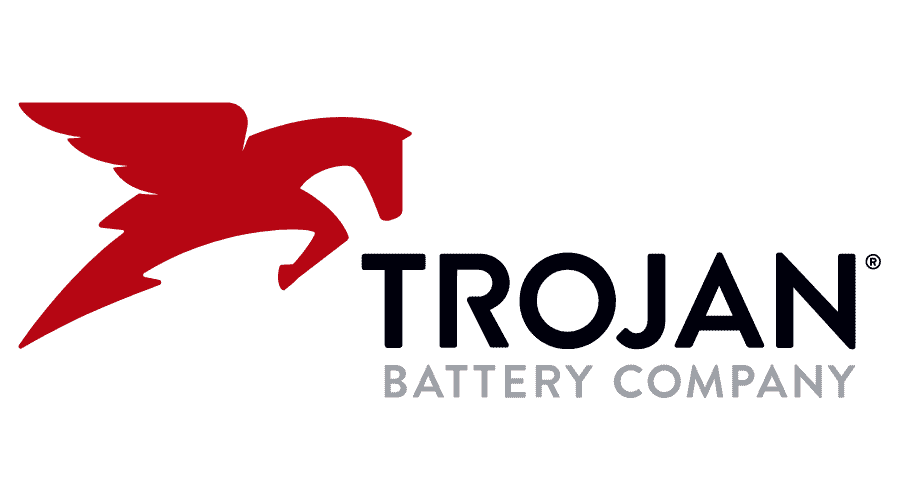By Josh MacDonald, Boom & Bucket — Artificial intelligence (AI) is revolutionizing the heavy equipment industry by introducing unprecedented levels of efficiency and precision.
Gone are the days of solely relying on manual operation and scheduled maintenance; today’s AI-driven equipment boasts real-time data analysis and adaptive controls that greatly improve operational productivity.
 This technology not only bolsters the capacity of machinery but also extends its lifespan and minimizes costs associated with wear and tear.
This technology not only bolsters the capacity of machinery but also extends its lifespan and minimizes costs associated with wear and tear.
By leveraging machine learning (ML) algorithms, AI systems continuously refine their performance, ensuring that heavy equipment operates at its peak.
This shift towards intelligent machinery is setting new benchmarks in construction, mining and agriculture, fundamentally transforming how these sectors engage with heavy-duty tasks.
Improving heavy equipment efficiency
Heavy machinery is the backbone of industries such as construction, mining and agriculture. Perfect used heavy equipment, updated with AI technology, performs better than ever.
This modern tech makes these machines smarter and more efficient.
Read on to discover how AI boosts efficiency in heavy equipment.
Automation and data collection
Automation in heavy equipment means machines do more work with less human effort. Imagine excavators or bulldozers operating semi-autonomously on a construction site.
They dig, lift and move materials accurately and quickly.
- Less downtime: Machines work around the clock.
- Fewer errors: AI reduces human mistakes.
- Optimized operations: Smart scheduling and task assignment.
Data collection tells us how machines are performing. Sensors on equipment gather tons of data.
This data includes fuel usage, working hours, and much more. AI processes this data and helps improve how we use heavy machines.
| Data Collected | Benefits |
| Fuel Usage | Identify patterns and save fuel |
| Working Hours | Prevent overuse and reduce wear |
Predictive maintenance
AI makes maintenance smarter, too. Predictive maintenance uses AI to foresee problems before they happen.
This means fixing a part before it breaks and halts work.
- Less downtime: Fix issues before they stop the machine.
- Cost savings: Avoid expensive repairs and lost productivity.
- Longevity: Extend the life of perfect used heavy equipment.
With AI, machines tell us what they need and when. This tech can predict tire failures, engine issues, and more. It’s like having a fortune teller for your equipment, keeping it running smoothly.
Enhancing safety and accuracy
 The arrival of AI in the heavy equipment sector has brought remarkable improvements. Notably, it enhances both safety and accuracy, reducing workplace incidents and increasing operational precision.
The arrival of AI in the heavy equipment sector has brought remarkable improvements. Notably, it enhances both safety and accuracy, reducing workplace incidents and increasing operational precision.
Machines can now avoid errors that humans might make. Workers stay safe, and tasks are done right the first time.
Real-time monitoring and alerts
Artificial intelligence infuses heavy equipment with the power to monitor conditions continuously.
This means potential issues are spotted before they cause harm. Check out how real-time monitoring reshapes safety:
- Sensors detect irregularities instantly, triggering alerts.
- Machine health is closely watched, prompting timely maintenance.
- Operators receive real-time data on equipment status, avoiding accidents.
Alerts are life-savers, giving workers the chance to resolve issues quickly. This keeps everyone safe and machines running smoothly.
Autonomous operation
AI propels heavy machinery into the future with autonomous operation. Here’s how automation is changing the game:
- Robotic machines perform dangerous jobs, keeping people out of harm’s way.
- AI-driven equipment works with incredible accuracy and consistency, enhancing quality.
- Automated processes adapt to changing environments, maintaining safety.
This leap in technology means heavy equipment can work around the clock without tiring, making mistakes, or risking lives. It’s a win-win for productivity and, more importantly, for the safety of everyone involved.
Reducing downtime and costs
Reducing downtime and costs stands as a crucial benefit derived from the incorporation of AI in handling the best used heavy equipment.
The advanced analytics and predictive capabilities of AI systems are transforming how companies operate, ensuring machines run smoother and with fewer interruptions.
This shift means significant savings and increased job productivity.
Optimizing operations and workflows
AI technology is a game-changer for enhancing operational proficiency. By learning from data, AI predicts equipment failure before it occurs. This allows for preemptive maintenance, which is far less disruptive than unexpected repair work.
Bold advancements in AI assist in streamlining job assignments. The technology manages equipment use around the clock, matching tasks with the best used heavy equipment for the job.
This ensures machines operate at peak efficiency and work continues seamlessly.
- Real-time monitoring of equipment health.
- Automated scheduling for maintenance.
- Enhanced communication between machines and operators.
Efficient resource allocation
AI excels in allocating resources optimally. It decides the best way to deploy machines and staff, cutting waste. With precise usage patterns and forecasts, AI ensures that every piece of equipment is in the right place at the right time.
The result? The total operational cost comes down. Project managers gain a clear view of asset performance, improving decisions on equipment rental or purchase.
The AI systems also monitor fuel usage and energy efficiency, pushing down operating expenses.
| Aspect | Improvement due to AI |
| Maintenance scheduling | Proactive, not reactive |
| Resource utilization | Performance optimized |
| Operational costs | Significantly reduced |
Challenges and considerations
 As artificial intelligence reshapes heavy equipment efficiency, several challenges and considerations surface. Decision-makers must address these issues to fully leverage AI’s potential.
As artificial intelligence reshapes heavy equipment efficiency, several challenges and considerations surface. Decision-makers must address these issues to fully leverage AI’s potential.
Integration and compatibility
Integrating AI into existing heavy equipment requires careful planning.
- Compatibility with current systems is crucial.
- Upgrades or replacements may be necessary.
- Staff training ensures smooth adoption.
These factors ensure the seamless integration of AI technologies with heavy machinery.
Ethical and privacy concerns
Implementing AI brings ethical and privacy issues to the forefront.
- Data handling must comply with regulations.
- Transparent AI use builds public trust.
- Addressing job displacement concerns is vital.
It is essential to ensure ethical use and data protection while harnessing AI’s power.
Frequently Asked Questions (FAQs)
How is AI useful in heavy industry?
AI enhances efficiency in heavy industries by optimizing operations, reducing downtime, and improving safety.
It enables predictive maintenance, boosts automation, and streamlines supply chain management, leading to increased productivity. AI-driven analytics assist in making data-driven decisions, saving time and costs.
How does AI improve business efficiency?
AI streamlines operations by automating routine tasks, enhancing data analysis, and enabling predictive maintenance.
It also tailors customer experiences and aids in informed decision-making, thus boosting business efficiency.
How can the use of AI help improve the safety and efficiency of the factory?
AI enhances factory safety by predicting maintenance needs and reducing machine downtime. It streamlines processes, boosts operational efficiency, and minimizes human error risks. AI-driven robotics can perform hazardous tasks, further safeguarding workers.
How can AI impact the construction industry?
AI can improve construction project planning, enhance design optimization, and streamline operations. It reduces risks by predicting project outcomes and maintenance needs, boosting efficiency and safety.
Conclusion
As we wrap up our discussion on AI in heavy machinery, it’s clear the transformation is impressive. Smart automation increases productivity and safety, proving indispensable for future operations.
Embracing AI-driven technology helps businesses stay competitive and eco-conscious. The journey with artificial intelligence is just beginning, promising even greater advancements ahead.
 Josh MacDonald from BoomAndBucket.com is a seasoned growth marketer with 10+ years of experience crafting profitable bootstrapped ventures. Josh has co-founded successful ventures in both B2B software and B2C e-commerce, showcasing his full-stack developer skills.
Josh MacDonald from BoomAndBucket.com is a seasoned growth marketer with 10+ years of experience crafting profitable bootstrapped ventures. Josh has co-founded successful ventures in both B2B software and B2C e-commerce, showcasing his full-stack developer skills.
He excels in ad buying, growth hacking, and non-traditional acquisition channels. His passion lies in marketing roles, but his background in computer science allows seamless collaboration with engineers. Josh is the author of The Non-Technical Founder, which highlights his journey, including growing a SAAS company at 16 and founding a DTC e-commerce brand generating over $20,000/day.




